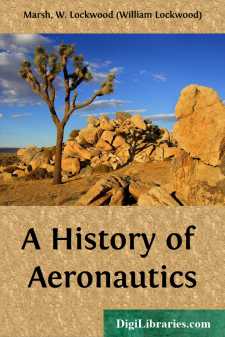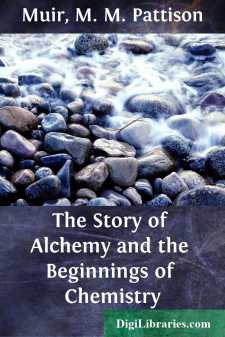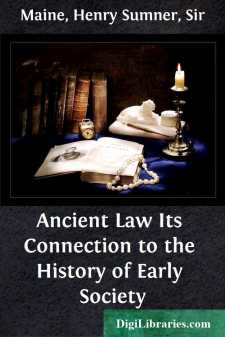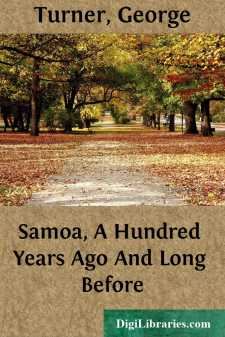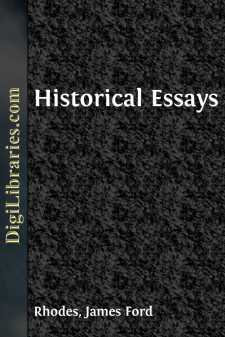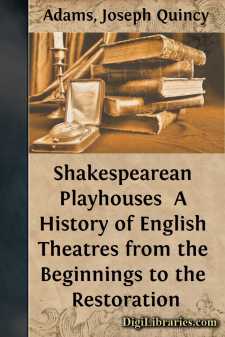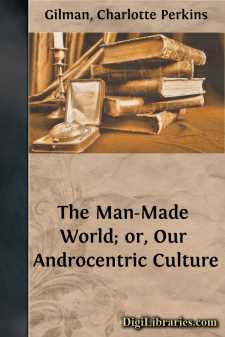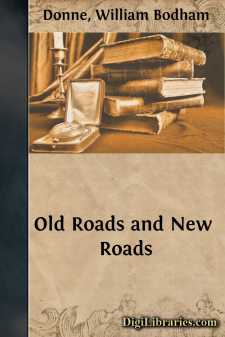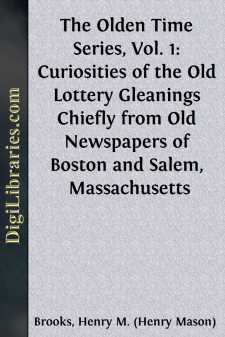History
- Africa 30
- Americas (North Central South West Indies) 50
- Ancient 68
- Asia 58
- Australia & New Zealand 8
- Canada 41
- Caribbean & West Indies 1
- Civilization 20
- Eastern Europe 12
- Europe 310
- Expeditions & Discoveries 60
- General
- Historical Geography 1
- Jewish 9
- Latin America 3
- Medieval 8
- Middle East 14
- Military 248
- Revolutionary 8
- Study & Teaching 5
- United States 353
- Western Europe 56
- World 13
General Books
Sort by:
I. THE PERIOD OF LEGEND The blending of fact and fancy which men call legend reached its fullest and richest expression in the golden age of Greece, and thus it is to Greek mythology that one must turn for the best form of any legend which foreshadows history. Yet the prevalence of legends regarding flight, existing in the records of practically every race, shows that this form of transit was a dream...
more...
CHAPTER I THE EXPLANATION OF MATERIAL CHANGES GIVEN BY THE GREEK THINKERS. For thousands of years before men had any accurate and exact knowledge of the changes of material things, they had thought about these changes, regarded them as revelations of spiritual truths, built on them theories of things in heaven and earth (and a good many things in neither), and used them in manufactures, arts, and...
more...
INTRODUCTION No one who is interested in the growth of human ideas or the origins of human society can afford to neglect Maine's Ancient Law. Published some fifty-six years ago it immediately took rank as a classic, and its epoch-making influence may not unfitly be compared to that exercised by Darwin's Origin of Species. The revolution effected by the latter in the study of biology was...
more...
by:
George Turner
CHAPTER I. Position Of The Islands—Early Visitors And Traditionary Origin. Samoa is the native name of the group of volcanic islands in central Polynesia long known as the "Navigators Islands." They are situated about 3000 miles from Sydney, and stand on the charts between the parallels of 13° and 15° south latitude, and 168° and 173° west longitude. The mountains of Savaii, one of which...
more...
HISTORY My theme is history. It is an old subject, which has been discoursed about since Herodotus, and I should be vain indeed if I flattered myself that I could say aught new concerning the methods of writing it, when this has for so long a period engaged the minds of so many gifted men. Yet to a sympathetic audience, to people who love history, there is always the chance that a fresh treatment may...
more...
THE INN-YARDS BEFORE the building of regular playhouses the itinerant troupes of actors were accustomed, except when received into private homes, to give their performances in any place that chance provided, such as open street-squares, barns, town-halls, moot-courts, schoolhouses, churches, and—most frequently of all, perhaps—the yards of inns. These yards, especially those of carriers' inns,...
more...
I. AS TO HUMANNESS. Let us begin, inoffensively, with sheep. The sheep is a beast with which we are all familiar, being much used in religious imagery; the common stock of painters; a staple article of diet; one of our main sources of clothing; and an everyday symbol of bashfulness and stupidity. In some grazing regions the sheep is an object of terror, destroying grass, bush and forest by omnipresent...
more...
Gentle Reader, If you look to move through this little volume in a direct line, after the present fashion of Railway Travelling, you will be signally disappointed. Nothing can well be more circuitous than the route proposed to you, nor more eccentric than your present guide. This book aspires to the precision of neither Patterson nor Bradshaw. Let men “bloody with spurring, fiery hot with...
more...
INTRODUCTION. While this work does not pretend to be a history, it will yet present many historical facts. Its object is to show from old newspapers, which are not accessible to all, such items and comments upon a variety of subjects as might be supposed to amuse or instruct both old and young. It is not the easy thing that many imagine to examine, read, and select from a vast number of newspapers such...
more...
by:
Peter C. Welsh
This history of woodworking hand tools from the 17th to the 20th century is one of a very gradual evolution of tools through generations of craftsmen. As a result, the sources of changes in design are almost impossible to ascertain. Published sources, moreover, have been concerned primarily with the object shaped by the tool rather than the tool itself. The resulting scarcity of information is somewhat...
more...


